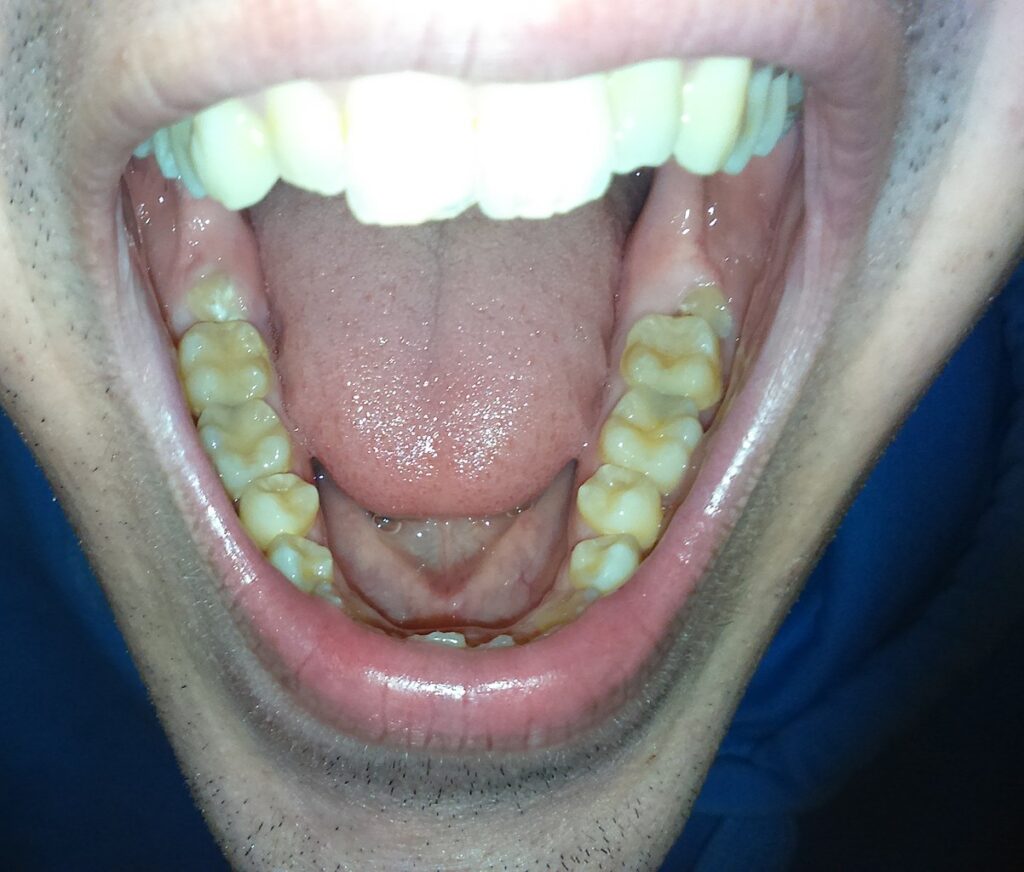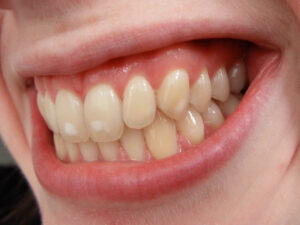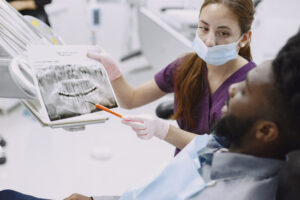If your dentist has recommended you have your wisdom teeth removed and the thought of it is making you nervous, you need not be. Wisdom teeth removal is a common, and for the most part, painless procedure. Please continue reading to learn more about what to expect with wisdom teeth removal. Hopefully, knowing what will happen will make you less anxious.
When do wisdom teeth come in?
Wisdom teeth, also called the third molars, typically appear between the ages of 18 and 24 years. Hence the name, because they appear when a person is of a relatively more mature age.
Does everyone have wisdom teeth?
Most people have their wisdom teeth erupt during the late teen years or early 20s. There are a total of 4 wisdom teeth located in the back of the mouth, one in each corner. But while most people have 1-4 wisdom teeth, some people don’t have any at all.
Is it normal not to have wisdom teeth?
When wisdom teeth come through properly, they can help you chew. However, you don’t need to worry if you don’t have wisdom teeth. Approximately 1 in 3 people don’t have the third molars. Some people have wisdom teeth but never see them emerge. In such cases, the dentist might tell you that you have impacted wisdom teeth. This means your wisdom teeth are trapped in your jawbone below the gum.
Why do dentists recommend having wisdom teeth removed?
In some people, wisdom teeth cause problems because they are not in the correct position. This can make it harder to floss between teeth. It can lead to food becoming trapped between the teeth and allow cavity-causing bacteria to grow.
If there isn’t enough space in your mouth for your wisdom teeth to come through, your doctor might recommend wisdom teeth removal. This is to prevent overcrowding and damage to the neighboring teeth.
Another problem that can occur is partially erupted wisdom teeth, which can give bacteria access to your gums, creating a source of infection. This can lead to symptoms like wisdom teeth pain and swelling.
Impacted wisdom teeth (third molars that are trapped in the gums) can lead to cyst formation, which can damage the roots of nearby teeth.
Lastly, dentists sometimes recommend wisdom teeth removal as part of orthodontic treatment (braces) or other dental procedures.
What happens during wisdom tooth extraction?
Your dentist will inject a local anesthetic to numb the area. They will then make a small cut in the gum to expose the tooth and bone. The dentist may need to remove some bone if it blocks access to the root of the wisdom tooth. They will then remove the tooth as a whole or in sections. After cleaning the site, they will place stitches to close the wound, if needed. Finally, the dentist will place a cotton gauze on the wisdom tooth extraction site to control bleeding.
Most of the time, a wisdom tooth can be removed by a dentist in the office. However, if you have a deeply impacted wisdom tooth, you may be referred to an oral surgeon.
Is it wisdom teeth removal painful?
Dentists use numbing medicine before pulling wisdom teeth. This ensures you do not feel any pain when you have your wisdom teeth removed.
If you are sensitive to dental pain, be sure to tell your dental professional. This will allow them to use more anesthetic or additional medications to keep you comfortable. Telling your dentist about any dental anxieties is important so that they can offer solutions.
After the tooth extraction, you can take an over-the-counter pain medication, if needed. Your dentist may give you a prescription pain medicine if they removed bone during the procedure. You can use an ice pack on your cheek for swelling, as advised by your dentist.
What are the risks of having your wisdom teeth removed?
Wisdom teeth removal is a commonly performed dental procedure that is very safe. Rarely, complications can occur, such as a painful dry socket due to loss of the blood clot from the extraction site and exposure of bone. Also, during the wisdom tooth removal, there can be damage to the surrounding teeth, jawbone, or nerves. Some people can develop infection in the socket after wisdom tooth removal. The risk of complications is low if you follow your dentist’s advice on aftercare following wisdom teeth removal.
What to eat after wisdom teeth removal?
Dentists advise eating soft foods like yogurt, ice cream, and applesauce for the first 24 hours. You should avoid eating hard, spicy, chewy or sticky foods the first day after the procedure. It’s also a good idea to drink lots of water and stay well hydrated after wisdom teeth removal. However, you should avoid drinking hot beverages, alcohol, and carbonated or caffeinated beverages for the first 24 hours.
What precautions to take during wisdom teeth removal recovery?
- Avoid excessive spitting as this can dislodge the blood clot at the extraction site.
- You can resume normal daily activities the next day, but avoid very strenuous activities for a week.
- Eat soft foods and drink plenty of water for the first 24 hours. Avoid fried, spicy, and acidic foods as well as hot beverages and carbonated beverages.
- Don’t brush your teeth for 24 hours after wisdom teeth removal. Also, don’t rinse your mouth or use mouthwash the first day. After the first day, you can resume brushing your teeth, but be gentle around the surgical site. Rinse your mouth with warm salt water every 2 hours for the first week.
- Be sure not to smoke for at least 72 hours, or longer if possible. Don’t chew tobacco for the first week after your wisdom tooth removal. The use of tobacco products can delay healing and increase your risk of complications after wisdom teeth removal.
- You might not have any stitches or have self-dissolving stitches at the wisdom tooth surgical site. If you have stitches that need to be removed, your dentist will tell you when to return to the office for an appointment.
Finding a dentist for removal of wisdom teeth
If you have wisdom teeth pain in the corner of your mouth and want to get it checked out, it’s important not to wait too long. A dental professional can remove your wisdom teeth, if needed, during an office visit procedure that is painless for the most part. Express Dentist has a network of trusted dental professionals nationwide. We can connect you to leading dentists in your area for wisdom teeth removal. Call Express Dentist today and connect with a dentist to discuss treatment options.
About the author

Dr. Greg Grillo
Dr. Greg Grillo DDS studied at the University of Washington where he received a bachelors degree with Honors and later attended dental school on the same campus. Following school Dr. Greg served in the United States Navy as a dental officer. During this time he received advanced training in specialty areas of dentistry while also treating families of members of the military.
As well as sharing valuable information on dentistry and oral health, Dr. Greg remains a practicing dentist to this day. He works with families in the Okanogan Valley where he lives with his wife and three children.
- Dr. Greg Grillo
- Dr. Greg Grillo
- Dr. Greg Grillo
- Dr. Greg Grillo
- Dr. Greg Grillo
- Dr. Greg Grillo
- Dr. Greg Grillo
- Dr. Greg Grillo
- Dr. Greg Grillo
- Dr. Greg Grillo
- Dr. Greg Grillo
- Dr. Greg Grillo
- Dr. Greg Grillo
- Dr. Greg Grillo
- Dr. Greg Grillo
- Dr. Greg Grillo
- Dr. Greg Grillo
- Dr. Greg Grillo
- Dr. Greg Grillo
- Dr. Greg Grillo
- Dr. Greg Grillo
- Dr. Greg Grillo
- Dr. Greg Grillo
- Dr. Greg Grillo
- Dr. Greg Grillo
- Dr. Greg Grillo
- Dr. Greg Grillo
- Dr. Greg Grillo
- Dr. Greg Grillo
- Dr. Greg Grillo
- Dr. Greg Grillo
- Dr. Greg Grillo
- Dr. Greg Grillo
- Dr. Greg Grillo
- Dr. Greg Grillo
- Dr. Greg Grillo
- Dr. Greg Grillo
- Dr. Greg Grillo
- Dr. Greg Grillo
- Dr. Greg Grillo
- Dr. Greg Grillo
- Dr. Greg Grillo
- Dr. Greg Grillo
- Dr. Greg Grillo
- Dr. Greg Grillo
- Dr. Greg Grillo
- Dr. Greg Grillo
- Dr. Greg Grillo
- Dr. Greg Grillo
- Dr. Greg Grillo
- Dr. Greg Grillo
- Dr. Greg Grillo
- Dr. Greg Grillo
- Dr. Greg Grillo
- Dr. Greg Grillo
- Dr. Greg Grillo
- Dr. Greg Grillo
- Dr. Greg Grillo
- Dr. Greg Grillo
- Dr. Greg Grillo
- Dr. Greg Grillo
- Dr. Greg Grillo
- Dr. Greg Grillo
- Dr. Greg Grillo
- Dr. Greg Grillo
- Dr. Greg Grillo
- Dr. Greg Grillo
- Dr. Greg Grillo
- Dr. Greg Grillo
- Dr. Greg Grillo
- Dr. Greg Grillo
- Dr. Greg Grillo
- Dr. Greg Grillo
- Dr. Greg Grillo
- Dr. Greg Grillo
- Dr. Greg Grillo
- Dr. Greg Grillo
- Dr. Greg Grillo
- Dr. Greg Grillo
- Dr. Greg Grillo
- Dr. Greg Grillo
- Dr. Greg Grillo
- Dr. Greg Grillo
- Dr. Greg Grillo
- Dr. Greg Grillo
- Dr. Greg Grillo
- Dr. Greg Grillo
- Dr. Greg Grillo
- Dr. Greg Grillo
- Dr. Greg Grillo
- Dr. Greg Grillo




